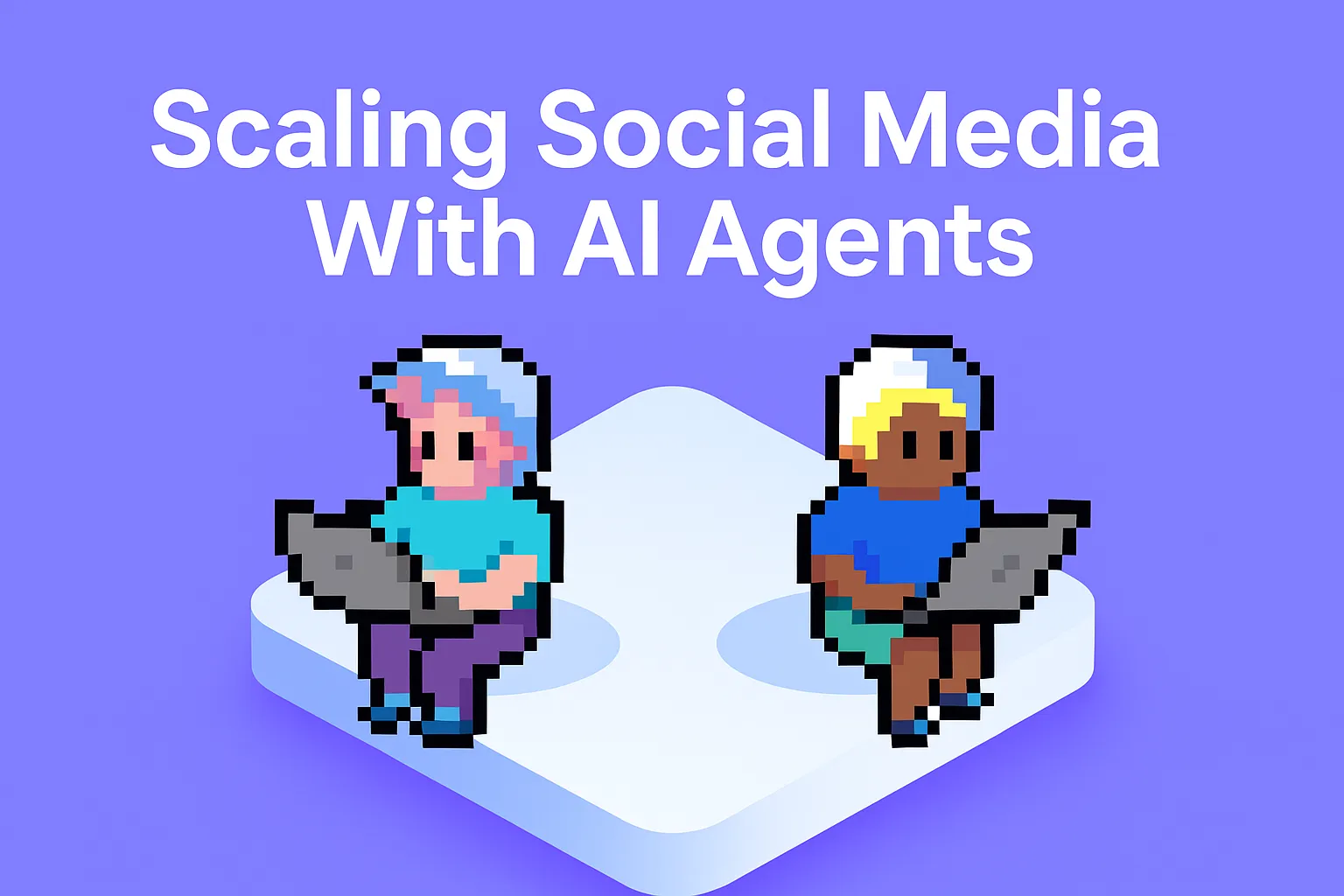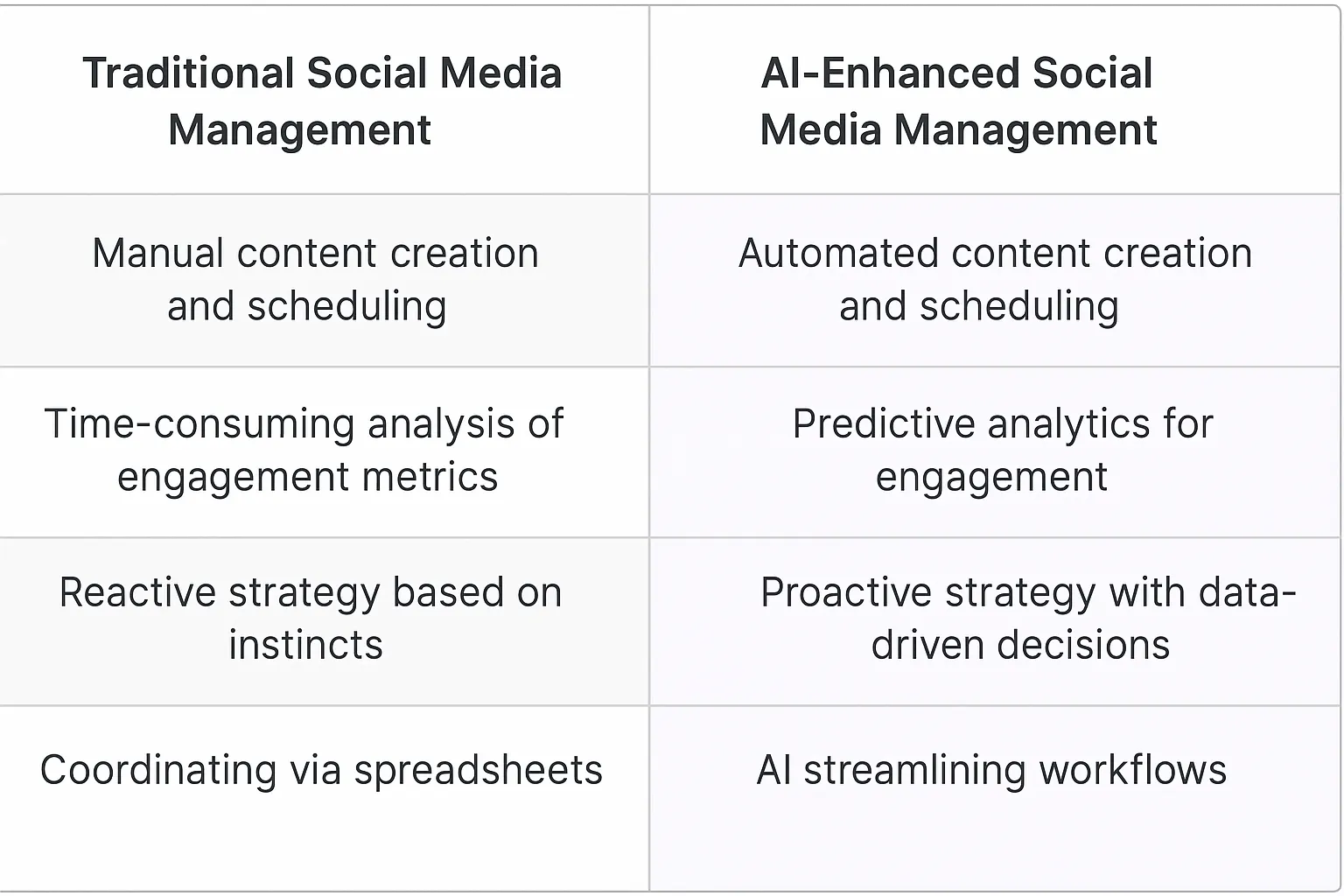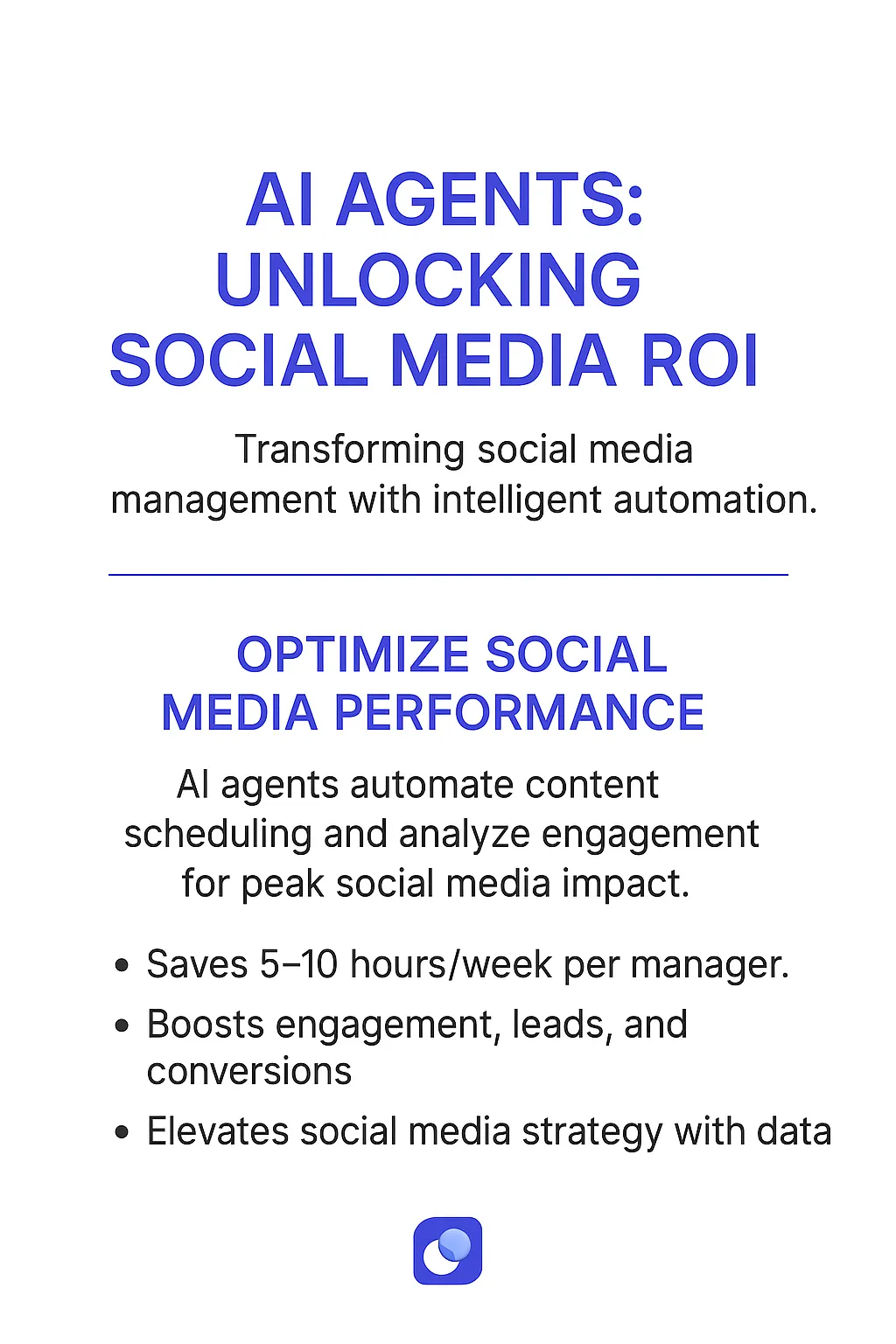SocialPilot
Understanding SocialPilot's Core Platform and Features
SocialPilot stands as a comprehensive social media management platform that enables teams to coordinate, schedule, and analyze their social media presence across multiple platforms. The platform combines robust scheduling capabilities with advanced analytics, allowing organizations to maintain consistent brand presence while measuring and optimizing their social media performance.
Key Features of SocialPilot
The platform excels in multi-account management, offering sophisticated content scheduling across major social networks. Its analytics suite provides deep insights into post performance, audience engagement, and content effectiveness. The bulk scheduling feature enables efficient content planning, while the content curation tools help teams discover and share relevant industry content. With team collaboration features, organizations can maintain smooth approval workflows and coordinate their social media efforts effectively.

Benefits of AI Agents for SocialPilot
What would have been used before AI Agents?
Social media managers traditionally spent countless hours manually crafting posts, analyzing engagement metrics, and adjusting content strategies through trial and error. The process involved multiple team members coordinating across spreadsheets, content calendars, and approval chains. Marketing teams relied on gut instinct and basic analytics to determine optimal posting times and content types.
What are the benefits of AI Agents?
AI Agents transform social media management by introducing intelligent automation that goes far beyond basic scheduling. These digital teammates analyze vast amounts of historical performance data to identify precise posting windows when target audiences are most active and engaged.
The real power lies in their ability to learn from each post's performance. They detect subtle patterns in engagement rates, click-through behavior, and audience responses that human managers might miss. This continuous learning loop means strategies become more refined over time.
Content creation becomes more strategic with AI Agents analyzing trending topics and successful post formats across industries. They can suggest content themes that resonate with specific audience segments, while maintaining brand voice consistency - a task that typically required extensive human oversight.
For multi-brand managers, AI Agents excel at adapting content across different social platforms while preserving each message's core value. They understand platform-specific nuances, automatically adjusting image dimensions, hashtag usage, and tone to match where the content will live.
The most significant advantage is the shift from reactive to predictive social media management. Rather than responding to metrics after the fact, teams can now anticipate content performance and make data-driven adjustments before posts go live. This leads to higher engagement rates and more efficient resource allocation.

Potential Use Cases of AI Agents with SocialPilot
Processes
Social media management through SocialPilot becomes significantly more dynamic when paired with AI agents. These digital teammates can analyze engagement patterns across multiple platforms, identifying optimal posting times based on historical performance data. They monitor content performance metrics, automatically adjusting scheduling strategies to maximize reach and engagement.
The AI agents can establish automated workflows for content curation, examining trending topics within specified industries and suggesting relevant content pieces that align with brand voice and audience interests. They continuously learn from engagement metrics to refine content recommendations and posting strategies.
Tasks
- Content Calendar Optimization: AI agents analyze past performance data to build strategic posting schedules across different social platforms, considering factors like time zones and platform-specific peak activity periods.
- Hashtag Research and Implementation: The digital teammates conduct real-time hashtag analysis, identifying trending and relevant tags while avoiding overused or banned combinations.
- Engagement Analytics: AI agents track and analyze engagement metrics across all social platforms, generating detailed reports highlighting successful content patterns and areas for improvement.
- Content Repurposing: Transform existing content into multiple formats suitable for different social platforms, maintaining brand consistency while optimizing for platform-specific requirements.
- Competitor Analysis: Monitor competitor social media activities, identifying successful strategies and content gaps that can be leveraged for improved performance.
- Audience Insight Generation: Create detailed audience behavior reports by analyzing engagement patterns, helping to refine content strategy and targeting approaches.
- Crisis Detection: Monitor social mentions and engagement patterns to identify potential PR issues early, enabling quick response strategies.
These AI-powered capabilities transform social media management from a reactive to a proactive process, enabling teams to focus on creative strategy while the digital teammates handle data-driven optimization tasks.

Industry Use Cases
Social media management demands a delicate balance between consistency, creativity, and timing - areas where AI agents within SocialPilot deliver exceptional value. The integration of AI into social media workflows creates opportunities for businesses to scale their social presence while maintaining authentic connections with their audience.
Digital marketing teams across sectors have discovered unique ways to leverage SocialPilot's AI capabilities. From retail brands orchestrating multi-platform campaigns to B2B companies nurturing thought leadership, these AI-powered tools adapt to distinct industry requirements and social media strategies.
The real power emerges when teams combine AI's analytical capabilities with human creativity. Marketing managers can focus on strategy and relationship building while their digital teammates handle the complex orchestration of post scheduling, content analysis, and performance tracking. This partnership between human expertise and AI capabilities has transformed how different industries approach social media management.
Looking at specific industry applications reveals patterns of innovation and efficiency gains that go far beyond basic automation. These use cases demonstrate how AI agents within SocialPilot become integral parts of social media teams, enabling more sophisticated and impactful social strategies.
Digital Marketing Agencies: Scaling Social Media Management with AI
Digital marketing agencies face a unique challenge - managing dozens or even hundreds of social media accounts while maintaining quality and personalization at scale. The traditional approach of manually creating, scheduling, and analyzing posts across multiple platforms simply doesn't scale.
SocialPilot's AI capabilities transform how agencies handle this complexity. The AI analyzes historical performance data across client accounts to identify optimal posting times, content themes, and engagement patterns unique to each client's audience. This moves beyond basic scheduling into strategic content optimization.
For example, a mid-sized agency managing 50 client accounts can leverage the AI to automatically generate platform-specific variations of posts. A single piece of content for a restaurant client gets intelligently reformatted - Instagram gets the eye-catching food photography with concise captions, while Facebook receives longer-form content about the chef's inspiration and cooking process.
The AI also provides predictive analytics, forecasting which content themes and formats are likely to resonate based on emerging trends in each client's industry. This allows account managers to make data-driven recommendations rather than relying on gut feel.
Most importantly, the AI handles the repetitive aspects of social media management - tagging, categorizing, basic performance reporting - freeing up agency teams to focus on strategy and creative work that truly moves the needle for clients. The result is higher quality output and better results without increasing headcount.
This shift from manual to AI-enhanced social media management represents a step-function improvement in how agencies operate and scale their social media services. The agencies that embrace these capabilities gain a significant competitive advantage in both operational efficiency and client results.
E-commerce: Converting Social Browsers into Buyers with AI
The e-commerce playbook is undergoing a fundamental shift. While most online retailers focus on paid ads and email marketing, the real opportunity lies in leveraging AI-powered social media to create a seamless discovery-to-purchase journey.
SocialPilot's AI capabilities enable e-commerce brands to execute sophisticated social selling strategies that were previously only possible with large teams. The AI analyzes product catalogs, customer behavior patterns, and social engagement data to automatically generate shoppable posts that feel organic rather than promotional.
Take the case of a mid-sized fashion retailer: The AI identifies which product combinations drive the highest engagement and sales, then automatically creates collection-based content that showcases these winning combinations. When a new dress launches, the system knows to pair it with trending accessories and schedule posts during peak shopping hours for the target demographic.
The technology goes beyond basic product promotion by analyzing posts and customer comments and messages to identify purchase intent signals. This allows brands to trigger personalized response sequences that guide potential customers through the consideration process with relevant product information, styling tips, and social proof.
What's particularly powerful is how the AI adapts content based on platform-specific shopping behaviors. It recognizes that Instagram users respond better to lifestyle imagery with subtle product tags, while Pinterest users engage more with detailed product specifications and pricing information.
The data shows that e-commerce brands using AI-powered social media management see a 40-60% increase in social-driven sales compared to traditional manual approaches. This isn't just about posting more frequently - it's about creating an intelligent, responsive social commerce engine that converts casual browsers into buyers.
For e-commerce companies looking to scale their social media presence while maintaining authenticity and driving sales, AI-enhanced tools represent the next evolution in social commerce strategy.
Considerations and Challenges
Implementing SocialPilot AI Agents requires careful planning and awareness of several key factors that can impact success. Organizations need to evaluate their social media strategy, team structure, and technical capabilities before deployment.
Technical Considerations
API rate limits pose a significant constraint when scaling social media operations. SocialPilot AI Agents must operate within these boundaries while managing multiple accounts and platforms simultaneously. Teams need to implement proper error handling and queue management to prevent failed posts or scheduling conflicts.
Data privacy regulations across different regions affect how AI Agents can access and process user information. Organizations must ensure their implementation complies with GDPR, CCPA, and other relevant privacy frameworks, particularly when handling customer engagement data.
Operational Challenges
Content authenticity becomes more complex with AI-powered posting. While AI Agents can generate and schedule content efficiently, maintaining brand voice consistency requires ongoing training and refinement of the AI model. Teams need to establish clear editorial guidelines and review processes.
Cross-platform coordination demands sophisticated orchestration. Each social network has unique formatting requirements, character limits, and optimal posting times. AI Agents must adapt content appropriately while preserving the core message across platforms.
Integration Requirements
Existing workflow tools and analytics platforms need seamless connection with SocialPilot AI Agents. Organizations should audit their tech stack compatibility and plan for potential custom integration development. This includes establishing reliable data pipelines for performance metrics and engagement analytics.
Team training and change management prove crucial for adoption. Social media managers and content creators need to understand how to effectively collaborate with AI Agents, including when to override automated decisions and how to provide feedback for improved performance.
AI-Enhanced Social Media Management: The Future of Digital Marketing
The integration of AI Agents with SocialPilot represents a fundamental shift in social media management. Organizations that embrace this technology gain significant advantages in operational efficiency, content optimization, and audience engagement. While challenges exist in implementation and integration, the benefits of AI-enhanced social media management far outweigh the initial hurdles. As social media continues to evolve, the combination of human creativity and AI capabilities will become increasingly crucial for maintaining competitive advantage in the digital space.













